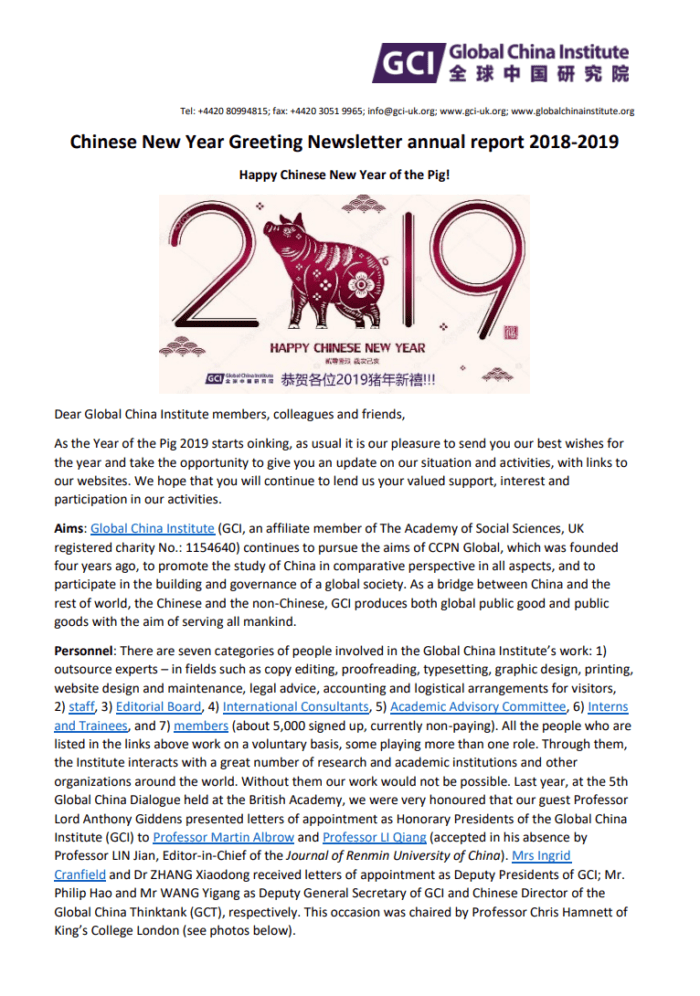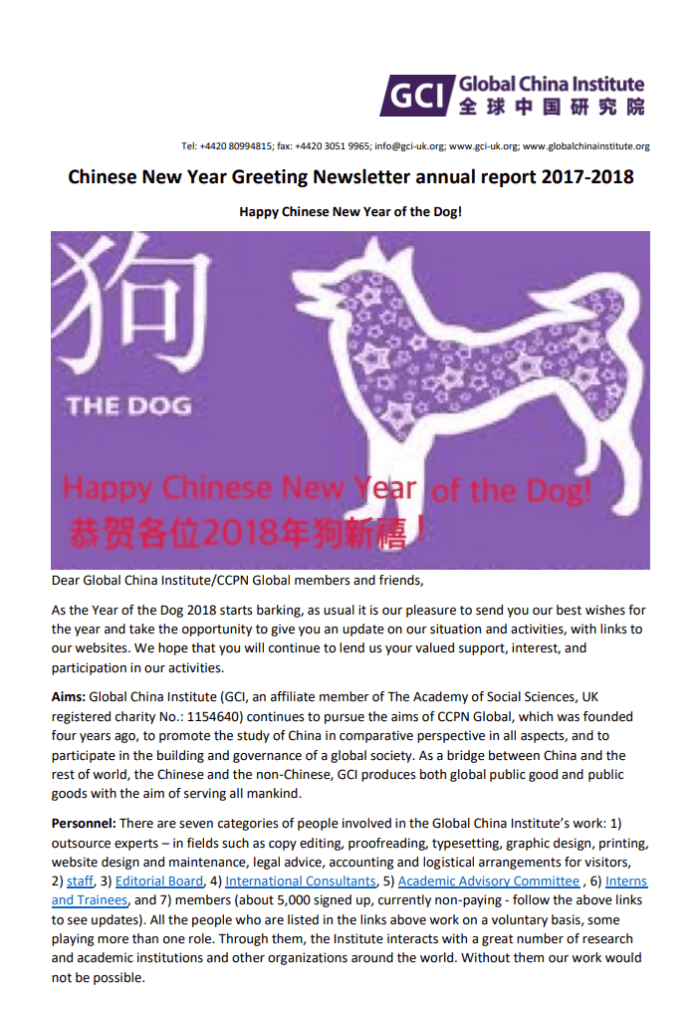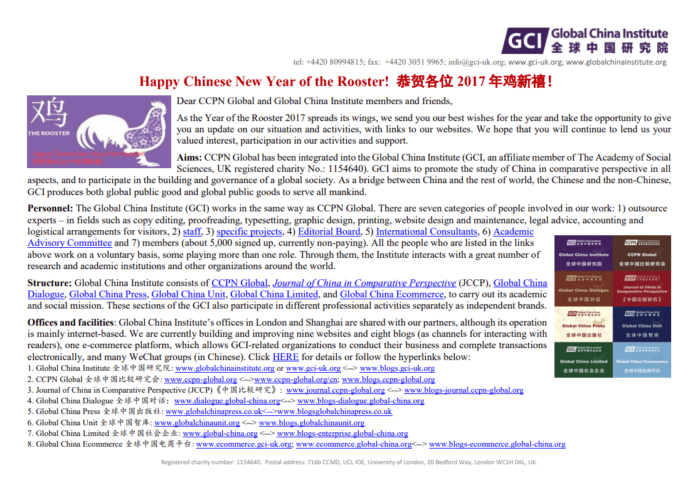
Chinese New Year Greeting Newsletter / GCI Annual Report (2018–2019)
Dear Global China Institute members, colleagues and friends,
As the Year of the Pig 2019 starts oinking, as usual it is our pleasure to send you our best wishes for the year and take the opportunity to give you an update on our situation and activities, with links to our websites. We hope that you will continue to lend us your valued support, interest and participation in our activities.
The 2018-2019 annual report shows our focus has been on enhancing global understanding of China through our internet-based initiatives, academic research, and publications. We are committed to academic excellence and societal engagement, aiming to expand our global network and strengthen knowledge exchange between China and the world. This report reflects our journey and our plans for future growth and deeper global integration.
Click HERE to download the PDF file.

Chinese New Year Greeting Newsletter / GCI Annual Report (2017–2018)
Dear Global China Institute/CCPN Global members and friends,
As the Year of the Dog 2018 starts barking, as usual it is our pleasure to send you our best wishes for the year and take the opportunity to give you an update on our situation and activities, with links to our websites. We hope that you will continue to lend us your valued support, interest, and participation in our activities.
This Chinese New Year Greeting Newsletter serves the end of year repaort of the Global China Institute and CCPN Global. It extensively covers our activities and achievements. It discusses our dedication to global and comparative-oriented Chinese studies, their unique internet-based operational approach, and our role as a knowledge exchange platform. The newsletter also outlines our various academic and societal projects, significant publications, and our emphasis on bridging Chinese and global perspectives. It highlights our expansive global network, scholarly contributions, and future aspirations as a progressive think tank.
Click HERE to download the PDF file.

Chinese New Year Greeting Newsletter / GCI Annual Report (2016–2017)
Dear CCPN Global and Global China Institute members and friends,
As the Year of the Rooster 2017 spreads its wings, we send you our best wishes for the vear and take the opportunity to giveyou an update on our situation and activities, with links to our websites. We hope that you will continue to lend us youivalued interest. participation in our activities and support.
This Chinese New Year Greeting Newsletter outlines our aims, structure, personnel, and achievements. The Global China Institute focuses on promoting China’s study in a comparative perspective, bridging China and the world, and contributing to global society. The document details our organizational structure, internet-based operations, various projects and publications, and plans for future development. Significant emphasis is placed on their global network, academic work, and role as a knowledge-based think tank, with ongoing projects and publications in Chinese and global context.
Click HERE to download the PDF file.

